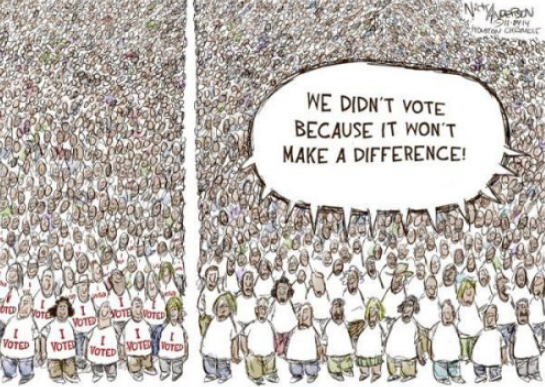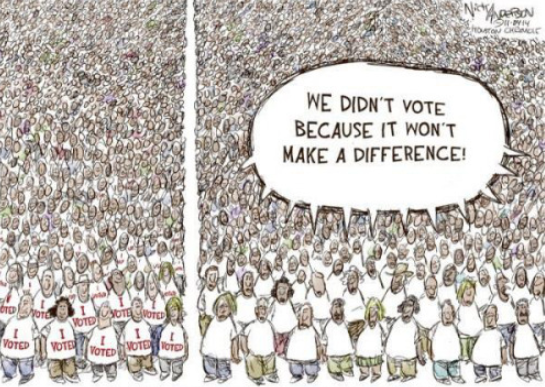Teachable Moments in Civics Class: Responding to Misguided Opinions and Declarations
by Bonnie Mills, Manager of National Program Development and Partnerships
“The Electoral College isn’t fair! Why would I vote if my vote might not count?!” As a former American Government and Politics teacher, I heard this sentiment from students often. Upon learning that the Electoral College vote could override a popular vote, students grew frustrated. Even after going over benefits of the Electoral College, like its ability to magnify the voting power of smaller states, the possibility of what seemed to them like an unfair outcome, left some students in opposition to this aspect of our indirect democracy.
Many Americans agree with my students. According to Gallup, 63% of Americans support “doing away with the Electoral College.” And this isn’t a new phenomenon; there have been more Constitutional amendment proposals regarding the abolishment of the Electoral College than any other topic. Because the founding fathers created a dynamic constitution that can be amended, citizens are free to dissent and push for changes in the electoral process. The problem comes when citizens check out of voting all together because they think their vote doesn’t hold weight in the Electoral College system. Many of my students threatened this very thing.

After stifling my mild heart attack at the thought of students not executing their constitutional right to vote, I worked to clarify any confusion about the role of the Electoral College in the overall voting process in America. I explained that the Electoral College exists only for the Presidential election, not for the House of Representatives, the Senate, state governors, state legislators, state judges, mayors, school board members, aldermen, sheriff, or any of the other hundreds of elected positions that exist in this country. What’s more, there has never been an election in which only the Presidential seat is being filled. This means that even if you feel that your vote will hold little sway in a “blue,” “red,” “large,” or “small” state, there are always other seats up for election on the ballot that will be filled by the prevailing popular vote. And of course, it is important to vote for the President, regardless of the Electoral College,since, for example, politicians tend to pay more attention to the needs of the blocs of voters who vote, than those who don’t as they consider their approval ratings and reelection strategies. But, I digress. What the sentiments of my students demonstrate, is how a lack of civic knowledge and understanding can lead to misguided perspectives and uninformed voting, if not inaction altogether.
Unfortunately, the Electoral College isn’t the only civic process that is often misunderstood. Some people aren’t even aware that they have different legislators representing them at the federal level in D.C. than at at the state level in their state capitols. In fact, the entire system of federalism is complex and as such, can be confusing for people. Yet if people want to advocate for themselves and the issues important to them, they must understand it. This system is at the heart of many of the major debates of the day — gay marriage, the legalization of marijuana, gun rights, refugee resettlement, and others. Not to mention the — often taken for granted — quality of our roads, public education, and water safety.
Individual citizens are not solely to blame for their own lack of civic knowledge. I taught students in Tennessee, where American Government and Politics was a required course to graduate. Tennessee also requires that students complete a project based learning activity to put their civic knowledge into action regarding a community issue, also known as Action Civics. My students were lucky to spend so much classroom time learning about these issues and correcting their misconceptions. Most states set a lower bar for their students’ civic learning. This means many citizens are left without the knowledge, let alone skills, needed to participate in our democracy as active and informed citizens.
Now, of the 1,200 students I had the pleasure of teaching, I’m sure that very few of them will go on to be government officials. Some will be teachers, lawyers, mechanics, or nurses. But, they’ll all be citizens and thus will all need the information gained in their Government and Politics course. As Thomas Jefferson said, a well-informed electorate is a prerequisite to a democracy. All Americans need to know how their government works in order to make decisions about their participation in it. Thus, we must ensure that all of our students are provided with this education, and opportunities to put their knowledge into action, such that they can be active, well-informed participants in their democracy. Until that happens, people will continue to make uneducated decisions or check out all together, and I’ll keep doing my part to help educate young people on the political process and make sure that my mild heart attacks are followed by teachable moments.
Generation Citizen is a nonpartisan, 501(c)3 tax exempt organization which does not endorse candidates; our goal is to engage our staff, participants, and stakeholders in political and civic action on issues that matter to them personally and in their communities. The opinions expressed in this blog post are those of the writer alone and do not reflect the opinions of Generation Citizen.
